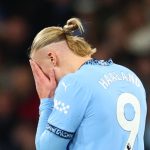John Minchillo/Charlie Riedel/AP
- The iconic Churchill Downs Racetrack in Louisville, Kentucky, hosted the 146th Kentucky Derby on Saturday, September 5.
- This year’s race, which was postponed from the first weekend in May due to coronavirus concerns, was unlike any other.
- The Derby took place with fewer horses, less than half the typical wagering, and no fans in the stands.
- During the Derby, Black Lives Matter activists and a Black militia held a protest outside Churchill Downs to demand the arrest of the police officers who killed Breonna Taylor, facing off against far-right counter-protesters.
- Visit Business Insider’s homepage for more stories.
In the world of horse racing, there is no bigger event than the Kentucky Derby.
Each year on the first weekend of May, fans celebrate the Derby in Louisville, Kentucky, with ritzy parties, massive hats, and plenty of mint juleps. Tens of thousands of people descend on the iconic Churchill Downs Racetrack to watch 20 horses compete for the $3 million purse.
In 2020, however, the Derby was different than ever before.
After being postponed due to coronavirus concerns, the race took place on September 5, four months later than planned. Jockeys and horses raced in front of empty stands, as fans were not allowed to attend in-person. Outside Churchill Downs, protesters gathered to demand justice for Breonna Taylor, the 26-year-old Black woman killed by police in Louisville in March.
Here’s what the Kentucky Derby was like during the pandemic.
Patrick Smith/Getty Images
Held at the Churchill Downs Racetrack in Louisville, Kentucky, the race draws tens of thousands of spectators every year.
The track, with a 165,000-person capacity and its distinctive Twin Spires, has hosted the Derby since 1875.
Spectators typically dress up in colorful suits and dresses and extravagant hats decorated with flowers, feathers, bows, and ribbons.
Robin Marchant/Getty Images for Churchill Downs
Wearing a hat to the Kentucky Derby is believed to bring good luck, according to the Derby’s website.
Two hatmakers Jenny Pfanenstiel of the Louisville-based Formé Millinery Hat Shop, and Christine Moore of her New York City-based millinery, told Business Insider’s Dominic-Madori Davis that patrons still ordered hats for the Derby this year that cost hundreds of dollars, even though most watched from home.
Last year, 150,729 people descended on the Churchill Downs Racetrack in Louisville, Kentucky to watch 20 horses compete for a $3 million purse.
Ian Johnson/Icon Sportswire via Getty Images
The champion, Country House, won after the first horse to cross the finish line, Maximum Security, was disqualified for coming off his line and impeding another horse.
The top five horses split the Derby purse of $3 million, with the first-place winner taking home $1.86 million.
This year, however, the Derby looked quite a bit different from before.
Jamie Squire/Getty Images
After being postponed from its usual slot of the first weekend in May, the 146th Kentucky Derby was held on Saturday, September 5.
It was the first time the Derby had not been held on the first Saturday in May since 1945, when the government banned horse racing because of World War II.
The most striking difference was that no fans were allowed to attend the race, leaving the stands largely empty.
Jamie Squire/Getty Images
Churchill Downs had initially said it would allow fans to watch the race with attendance limited to less than 23,000 guests — about 14% of its capacity of 165,000.
But a couple of weeks later, the racetrack announced that no spectators would be allowed at the race.
“Churchill Downs and all of our team members feel strongly that it is our collective responsibility as citizens of Louisville to do all we responsibly can to protect the health, safety, and security of our community in these challenging times and believe that running the Derby without spectators is the best way to do that,” Churchill Downs officials said in a statement. “We deeply regret the disappointment this will bring to our loyal fans.”
The record attendance for Derby Day is 170,513, set in 2015, according to Churchill Downs.
Kentucky officials praised the racetrack’s decision to hold the race without in-person spectators.
REUTERS/Bryan Woolston
In a statement, Kentucky Governor Andy Beshear said that Churchill Downs made the “right and responsible” decision.
“I am asking all Kentuckians to take action to stop the spread of the virus so we can get back to the many traditions we enjoy, like the Kentucky Derby,” Beshear said.
Louisville Mayor Greg Fischer also said it was the “right call” not to allow fans at the race.
“We’re seeing an unfortunate spike in COVID-19 here right now, and if we’re going to shorten this crisis and save lives, we have to consistently do what we know works — wear a mask, wash your hands, and maintain social distance, which in this case means, watching Derby 146 from the comfort and safety of our homes,” he said.
While the stands were mostly empty, a limited few spectators were allowed in.
Zach Bolinger/Icon Sportswire via Getty Images
The handful of people in the stands were made up of horse owners, those with connections to owners, and media, according to Bloodhorse magazine.
Instead of the typical crowds of raucous fans in the stands, the Derby’s onlookers watched in small groups and remained socially distanced.
Rob Carr/Getty Images
It was nothing compared to the upwards of 150,000 people that usually pack the stands.
Zach Bolinger/Icon Sportswire via Getty Images
Despite the circumstances, the tradition of over-the-top fascinator hats was kept alive.
Zach Bolinger/Icon Sportswire via Getty Images
This year, however, they were worn alongside face masks and face shields.
Many matched their hats to their face masks in a 2020 take on Derby fashion.
Zach Bolinger/Icon Sportswire via Getty Images
And some wore face masks customized with the name of their favorite horse. The fan pictured below is wearing a mask emblazoned with the name of the winning horse, Authentic.
Zach Bolinger/Icon Sportswire via Getty Images
Wagering on the Kentucky Derby is a sport in itself — but this year, the bets were few and far between.
Gregory Shamus/Getty Images
All-sources wagering on the race was $79.4 million compared to $165.5 million last year, per the Kentucky Derby’s official website.
The steep drop was due to the absence of on-track wagering, fewer horses racing because of the pandemic, and a prohibitive favorite, the Derby said.
While 20 horses typically compete in the Kentucky Derby, this year the race was limited to 15.
Andy Lyons/Getty Images
Ahead of the race, the favorite was Tiz The Law, who received 20% of the bets.
The horses pounded down the track in the absence of a typically roaring crowd. The race lasted just over two minutes.
Rob Carr/Getty Images
The Derby has been called “the most exciting two minutes in sports” or “the fastest two minutes in sports.”
The jockeys wore face coverings alongside their usual helmets and goggles.
Rob Carr/Getty Images
Authentic, ridden by jockey John Velazquez, led the race from the start and won by 1 1/4 lengths, beating favorite Tiz The Law.
Authentic’s win comes with $1.86 million in prize money and the famous golden trophy.
Zach Bolinger/Icon Sportswire via Getty Images
Authentic is co-owned by Spendthrift Farm — the racing operation of Public Storage founder B. Wayne Hughes — and Myracehorse.com, Madaket Stables, and Starlight Racing.
There was a commotion in the winner’s circle when Authentic was startled and knocked down his legendary trainer, Bob Baffert.
Photo by Jamie Squire/Getty Images
“What happened is — this horse is very skittish,” Baffert said at a press conference following the race. “He’s a quirky horse, that’s why he runs with earplugs. The garland of roses — for some reason, I’ve never seen it — they had a long red ribbon at the end of them. And it was hitting his hind leg and it was spooking him.”
This year’s victory was the 6th Derby win for Baffert, tying him with late horse trainer Ben Jones for most all-time wins among trainers.
Andy Lyons/Getty Images
Baffert trains horses for owners that include the Sheikh Mohammed of Dubai and the Magnier family of Coolmore farm in Ireland, one of the world’s premier thoroughbred breeding farms. The Hall of Fame trainer has also coached two Triple Crown winners: Justify and American Pharoah.
At the world’s largest horse sale in Lexington, Kentucky, last September, Baffert told Business Insider that he’s so successful because he never takes vacations.
“I work hard at it seven days a week,” Baffert said. “… If you want to play at this top-level, you have to stay with it.”
But he said he doesn’t have a problem with working so hard because he loves what he does.
“When you love horses as much as I do, you want to be around them,” he told Business Insider. “I mean, you can’t beat it.”
This year’s Kentucky Derby was out of the ordinary in other ways beyond taking place during a pandemic with no fans.
REUTERS/Bryan Woolston
Ahead of and during the race, Black Lives Matter activists, as well as members and supporters of an armed Black militia group called NFAC, gathered outside Churchill Downs to demand justice for Breonna Taylor, the 26-year-old Black woman who was killed by police in her home in Louisville in March.
Louisville activists have been protesting for Taylor for more three months and have said they will continue until the three officers involved in Taylor’s killing are charged.
Counter-protesters, including armed far-right activists and self-described militia members, faced off against the Black Lives Matter protesters.
REUTERS/Bryan Woolston
Protesters chanted, “No justice, no Derby!” and “Breonna Taylor, Breonna Taylor, Breonna Taylor,” while counter-protesters chanted “USA, USA, USA,” according to local publication the Courier Journal.
There was only a light police presence for most of the protest, per the Journal.
“Due to the size of the crowd, we determined it was not safe to go in and we did not want to escalate the situation with police presence,” police spokesperson Lamont Washington said. “Therefore, it was best to stage, call for additional resources to come downtown and see what developed.”
Though the protests became tense at times, with the two sides exchanging “pointed fingers” and “heated words,” the crowds remained peaceful.
The decision to hold the Derby without fans cost the city of Louisville an estimated $400 million in tourism revenue.
Zach Bolinger/Icon Sportswire via Getty Images
Back in January, Louisville Tourism estimated a $400 million economic impact for Louisville from the 2020 Kentucky Derby back in January.
Typically, the Derby weekend puts Louisville’s hotels and short-term rentals at nearly 100% occupancy, Louisville Tourism’s vice president of marketing and communications, Stacey Yates, told the Courier Journal.
Powered by WPeMatico






